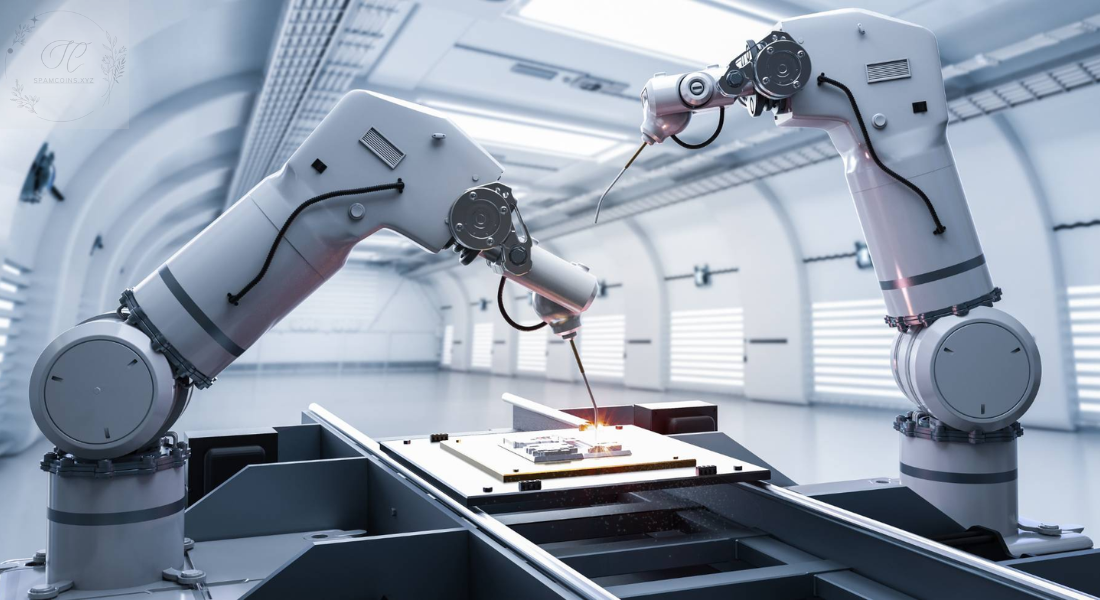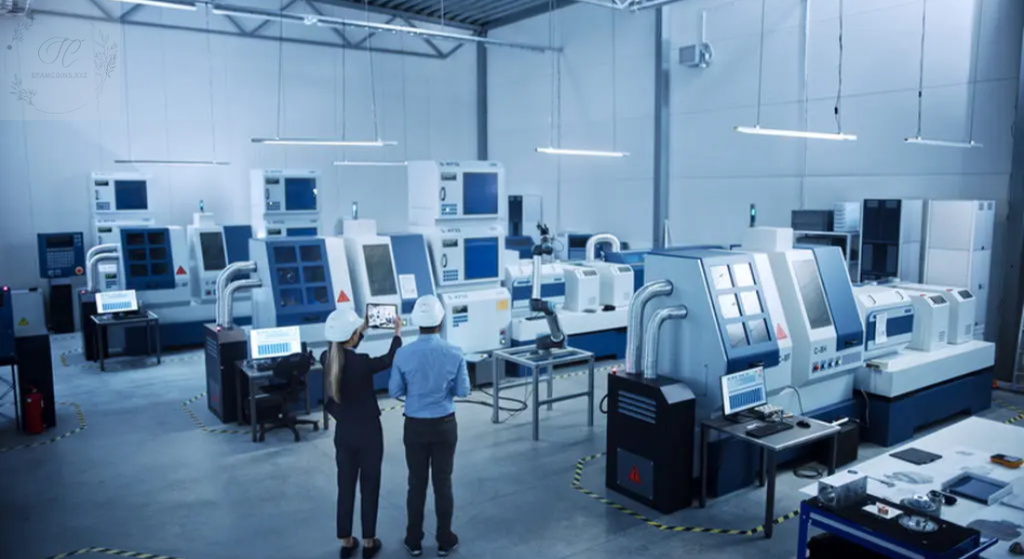Blog
Smart Automation Technology for Industries Transforming the Future of Business Operations
Smart automation technology for industries has emerged as a game-changer, enabling organizations to optimize processes, enhance productivity, and reduce costs while staying ahead in their respective markets.
The Role of Smart Automation in Modern Industries
Smart automation combines artificial intelligence, robotics, and advanced analytics to revolutionize how industries operate. By streamlining repetitive tasks and improving decision-making, smart automation technology for industries enhances both operational efficiency and overall output.
From manufacturing plants to logistics hubs, this technology enables seamless integration of processes, reducing downtime and maximizing resource utilization. It’s a cornerstone of Industry 4.0, paving the way for intelligent, connected systems.
Key Features of Smart Automation Technology
Understanding the features of smart automation technology for industries reveals its transformative potential. These innovations provide actionable insights, improve precision, and unlock new opportunities for growth.
Intelligent Robotics for Precision
Smart automation leverages advanced robotics to perform tasks with unparalleled accuracy. These machines adapt to dynamic environments, handle intricate operations, and reduce human error, making them indispensable in production lines.
Real-Time Data Processing
Smart systems analyze data in real-time, providing actionable insights for decision-making. This feature enables industries to predict maintenance needs, adjust workflows, and respond proactively to challenges.
Seamless Connectivity with IoT
The Internet of Things (IoT) plays a vital role in smart automation technology for industries. Connected devices share data across systems, fostering communication between machines and ensuring smooth, automated operations.
Predictive Maintenance Capabilities
Automated systems equipped with predictive analytics identify potential issues before they escalate. This reduces downtime, extends the lifespan of equipment, and ensures uninterrupted productivity.
Applications of Smart Automation Across Industries
The versatility of smart automation technology for industries allows its implementation across a wide range of sectors, each benefiting from its unique advantages.
Manufacturing for Streamlined Production
In manufacturing, automation reduces production time while maintaining quality standards. Robotics, automated assembly lines, and precision control systems boost output, ensuring consistent performance and lower production costs.
Logistics and Supply Chain Optimization
Smart automation enhances efficiency in logistics by automating inventory management, order processing, and transportation planning. Real-time tracking ensures transparency, while automated systems minimize delivery delays.
Healthcare Innovation and Accuracy
In healthcare, automation technology optimizes patient care and administrative tasks. From robotic surgeries to automated diagnostics, smart systems ensure precision, speed, and reliability in critical processes.
Energy and Utilities Management
Energy industries leverage smart automation technology for industries to monitor and control energy distribution systems. These systems optimize resource allocation, predict energy demands, and reduce operational inefficiencies.

Agriculture for Sustainable Growth
Smart automation drives precision agriculture, enabling farmers to monitor soil health, optimize irrigation, and improve crop yields. Automated machinery reduces labor requirements, fostering sustainable farming practices.
Benefits of Implementing Smart Automation
Adopting smart automation technology for industries offers numerous benefits that go beyond operational efficiency. These advantages position businesses for long-term success in competitive markets.
Enhanced Productivity
Automation eliminates bottlenecks and streamlines workflows, allowing businesses to achieve higher output in less time. Employees can focus on strategic tasks, further boosting productivity.
Cost Savings
By reducing labor-intensive processes and minimizing waste, automation lowers operational costs. Predictive maintenance also reduces repair expenses, ensuring a better return on investment.
Improved Safety Standards
In hazardous environments, automated systems perform risky tasks, protecting workers from harm. Smart monitoring systems also enhance workplace safety by detecting and mitigating potential hazards.
Scalability and Flexibility
Smart systems adapt to changing demands, enabling industries to scale operations efficiently. Whether expanding production or diversifying services, automation provides the agility needed to thrive.
Reduced Environmental Impact
Efficient resource management and waste reduction contribute to sustainability. Automation minimizes energy consumption and supports eco-friendly practices, aligning industries with environmental goals.
How to Implement Smart Automation Successfully
Transitioning to smart automation technology for industries requires strategic planning and a clear understanding of business needs. Here’s how to ensure a smooth implementation:
Assess Current Processes
Identify areas where automation can deliver the most impact. Focus on repetitive tasks, bottlenecks, or processes prone to human error to maximize efficiency gains.
Choose Scalable Solutions
Invest in systems that can grow with your business. Scalable technology ensures your automation efforts remain relevant as your organization expands or evolves.
Train Employees
Equip your workforce with the skills needed to operate and maintain automated systems. A well-trained team ensures seamless integration and maximizes the technology’s potential.
Monitor Performance
Track the performance of automated systems regularly. Use analytics to measure efficiency, identify areas for improvement, and ensure the technology aligns with organizational goals.
Overcome Challenges in Automation Adoption
Implementing smart automation technology for industries can be complex, but understanding potential challenges ensures successful integration:
Resistance to Change
Employees may resist automation out of fear of job displacement. Educate your workforce on the benefits of automation and provide opportunities for skill development to ease concerns.
High Initial Costs
While automation requires upfront investment, the long-term savings and productivity gains outweigh the costs. Plan budgets carefully and consider phased implementation to manage expenses.
Integration Complexities
Merging automation systems with existing infrastructure can be challenging. Collaborate with experienced vendors to ensure seamless compatibility and minimize disruptions.
Security Risks
Connected systems are vulnerable to cyber threats. Invest in robust cybersecurity measures to protect data and prevent unauthorized access to automated systems.
The Future of Smart Automation in Industries
The evolution of smart automation technology for industries continues to unlock new possibilities. Emerging trends promise even greater efficiency, accuracy, and innovation.
AI-Powered Systems
Artificial intelligence enhances automation by enabling machines to learn and adapt. These systems predict outcomes, optimize workflows, and deliver unprecedented levels of precision.
Autonomous Operations
Industries are moving toward fully autonomous operations, where machines make real-time decisions without human intervention. This reduces reliance on manual oversight and accelerates processes.
Advanced Robotics
Robotics innovations are creating smarter, more versatile machines. From collaborative robots working alongside humans to specialized bots for niche applications, the future of robotics is limitless.
Sustainable Automation Solutions
The focus on sustainability drives the development of eco-friendly automation systems. These technologies prioritize energy efficiency, waste reduction, and renewable resource utilization.
Embrace the Future with Smart Automation
Smart automation technology for industries is not just a trend—it’s a transformative force reshaping how businesses operate. By adopting this technology, industries can achieve unprecedented levels of efficiency, safety, and innovation.
Invest in automation today to unlock new growth opportunities, reduce costs, and stay ahead in a rapidly changing landscape. With the right strategy and tools, your business can thrive in the era of smart automation.

